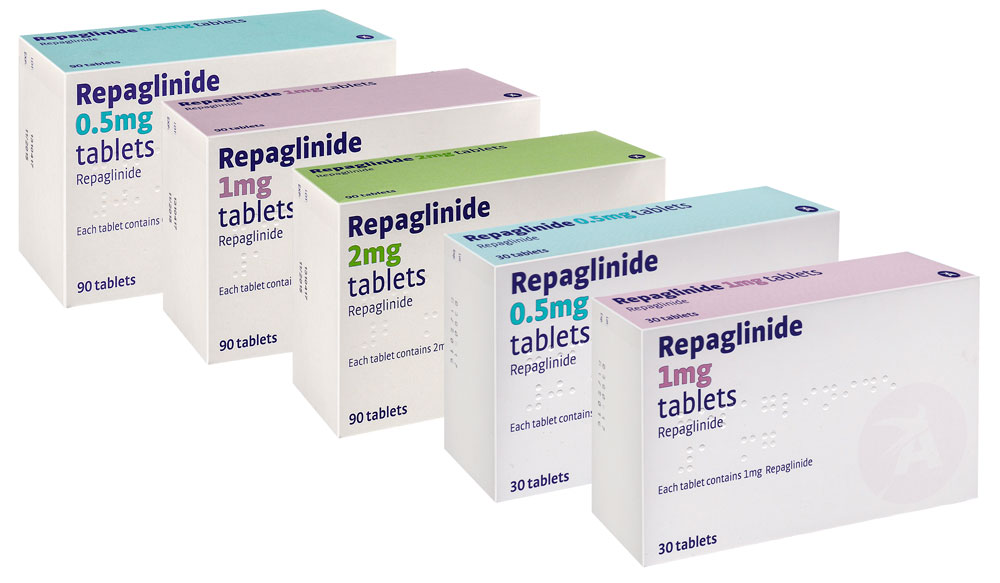
It is an antidiabetic drug in the class of medications known as meglitinides, and was invented in 1983 More
It is an antidiabetic drug in the class of medications known as meglitinides, and was invented in 1983
Repaglinide
Repaglinide; 135062-02-1; Prandin; NovoNorm; GlucoNorm
Eurepa, Eurepa-MF, Novonorm, Page, Q-Repa, Rapilin, Regan, Repa, Repide, Restrict
2-ethoxy-4-({[(1S)-3-methyl-1-[2-(piperidin-1-yl)phenyl]butyl]carbamoyl}methyl)benzoic acid
>98% protein binding.
Insulin secretion by pancreatic β cells is partly controlled by cellular membrane potential. Membrane potential is regulated through an inverse relationship between the activity of cell membrane ATP-sensitive potassium channels (ABCC8) and extracellular glucose concentrations. By inhibiting ATP-sensitive potassium channels, repaglinide increases insulin release in a glucose-dependent manner.
Usual initial dose: 0.5 mg, taken within 30 minutes of main meals.
Type 2 diabetes mellitus.
Vomiting, hypoglycaemia, constipation, nausea, arthralgia, diarrhoea, dyspepsia, rhinitis, sinusitis, back pain; rash, pruritus, urticaria; visual disturbances.
Diabetic ketoacidosis; severe hepatic impairment, type 1 diabetes; hypersensitivity. Lactation.
Store below 25°C. Protect from moisture
452.5857
C27H36N2O4
135062-02-1